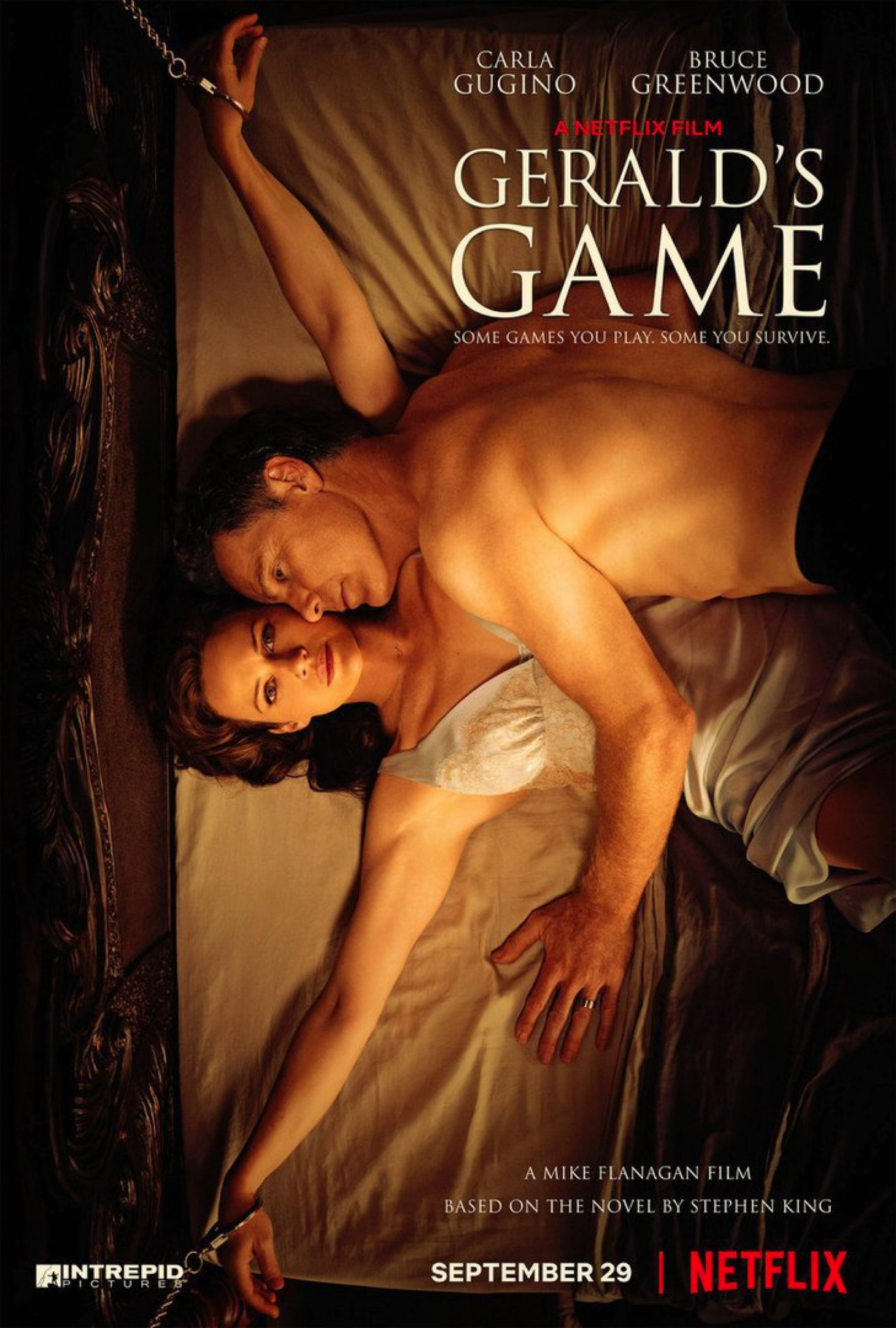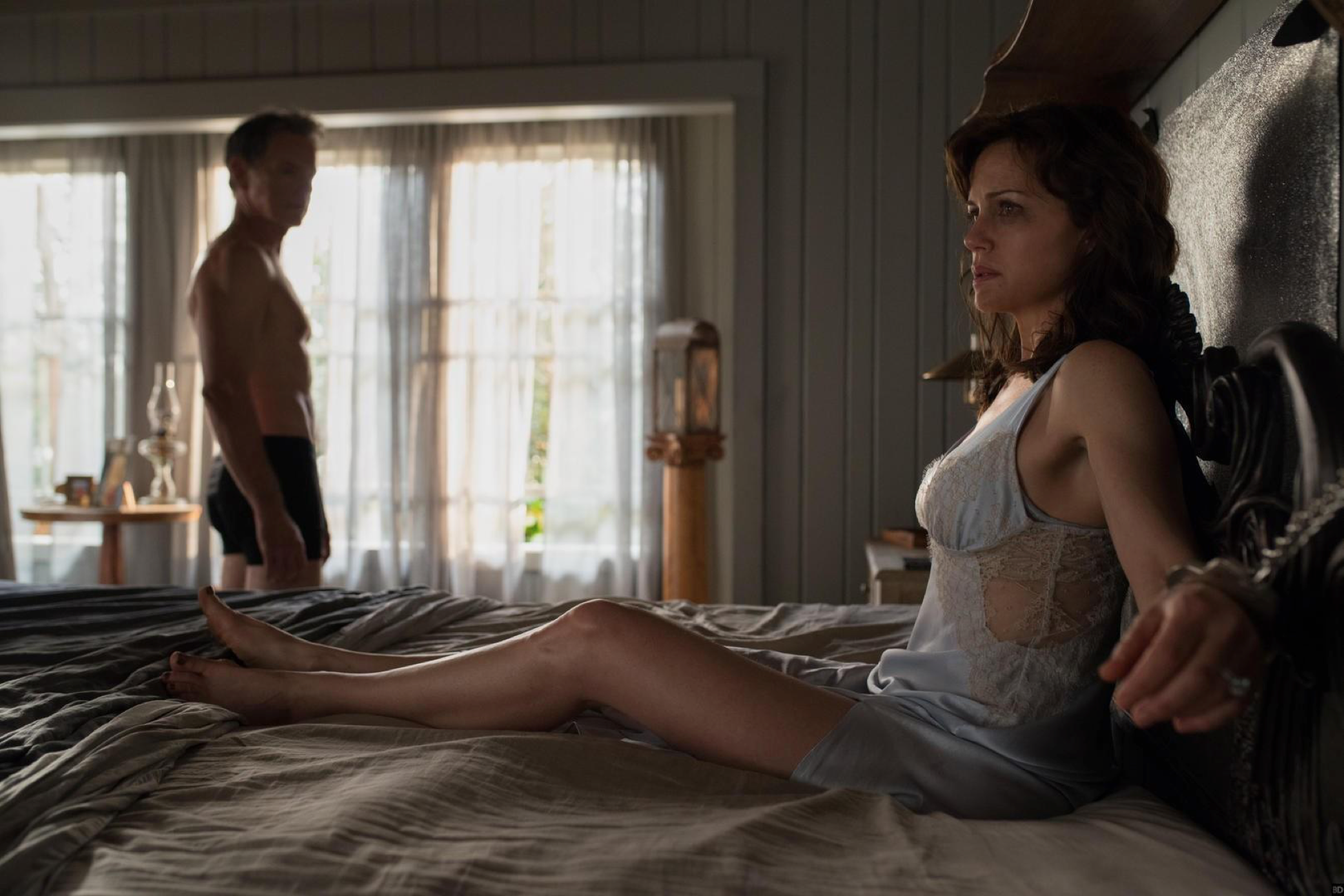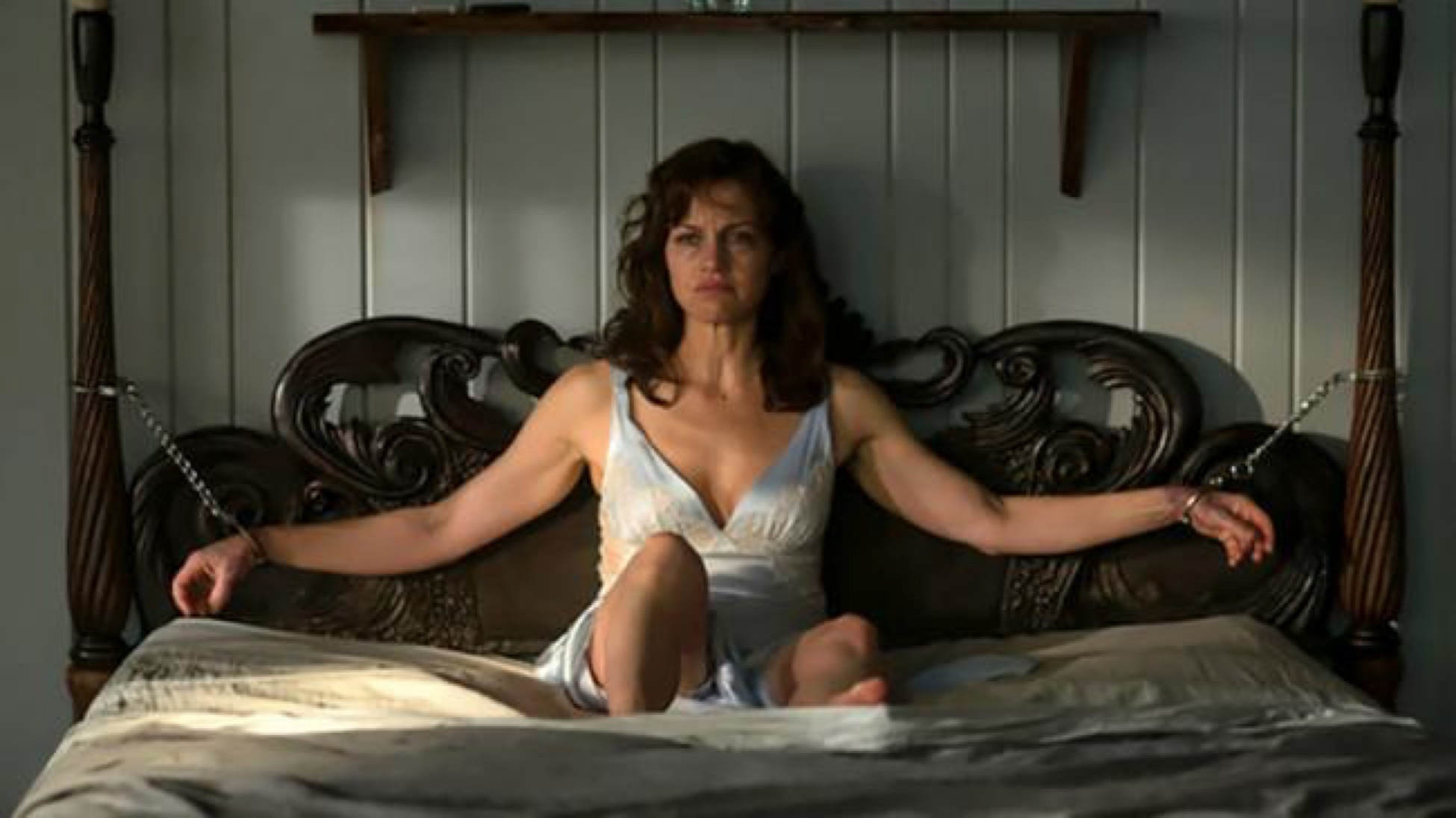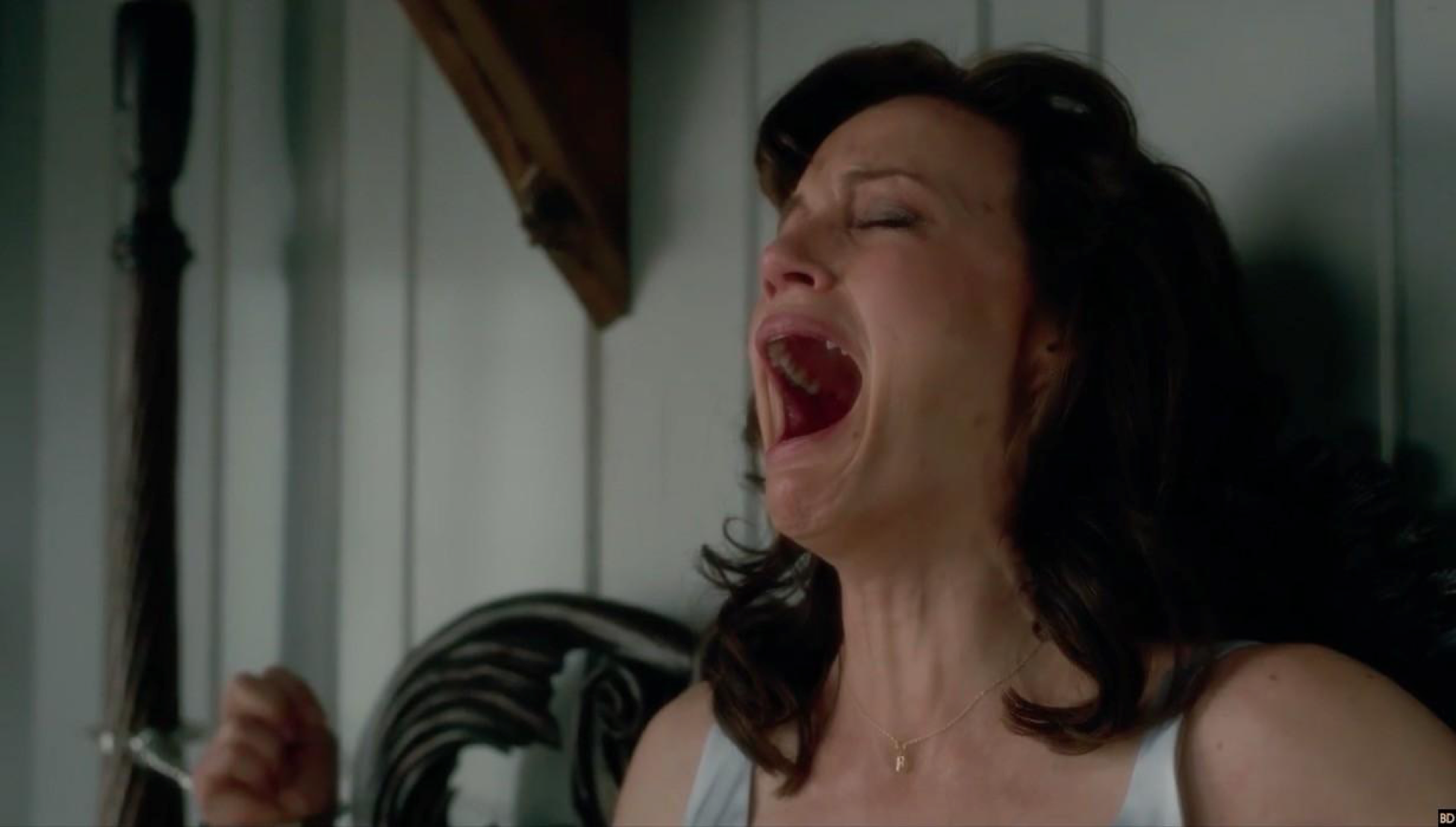GERALD’S GAME Review

Genre: Horror, Thriller
Director: Mike Flanagan
Year: 2017
Wow, talk about a “slow burn.” That’s a phrase that gets tossed around left and right among horror films that rarely merit it. More often than not, it merely refers to the late introduction of scary elements in an otherwise pleasant experience. (I’m looking at you, THE INNKEEPERS.) GERALD’S GAME is one of the few that actually starts off strong and keeps tightening the screws well past the breaking point. The latest in 2017’s free-for-all of Stephen King adaptations, GERALD’S GAME is excruciating to watch, but also one of the best translations of King’s work to the screen yet.
We open with married couple Gerald (Bruce Greenwood) and Jessie (Carla Gugino) heading up to their secluded rural cabin for a holiday of mindblowing sex. Gerald brings some handcuffs, and despite some early protests from Jessie, shackles her to the bed. It doesn’t take long after for the wife to finally put the foot down on Gerald’s rape fantasy, but before he can uncuff her, he suffers a heart attack. Jessie tries to wake him up, but in pushing him off the bed, ends up killing him instead. Alone and immobilized, Jessie must find a way to survive.

How else would you spend your weekend?
It’s one heck of a premise, and it remains riveting throughout the 100-minute runtime. Unlike the recent IT and THE DARK TOWER, GERALD’S GAME feels like something King wrote, weird sex stuff and all. The back-and-forth between the immediate crisis Jessie’s deteriorating physical shell and her internal struggle with the ever more corporeal manifestations of her consciousness is handled with unprecedented deftness. It’s cerebral as hell, but also physically immediate. No aspect of Jessie’s predicament is left unexplored, and the unceasing discomfort she experiences is almost as horrifying to imagine as the grisly demise she’s struggling to avoid. Usually minutiae like this is glossed over in film adaptations to compensate for their brevity relative to the novels they’re built atop of, but GERALD’S GAME manages to squeeze every awful detail into its neatly contained narrative.
But that burn! GERALD’S GAME does a fantastic job leaving horrors to the audience’s mind; after all, this is a story about a woman who can’t really do anything but imagine what fate awaits her. Flanagan does a great job framing around what is “too much” to show, but “just enough” to get stomachs churning. That is for the first hour, anyway. By the time the third act swings by, however, all pretensions of implying are thrown out the window. GERALD’S GAME delivers, and it delivers hard. This is not a ride for the squeamish. I wouldn’t have expected a Netflix feature to go to the lengths seen here, but kudos for not holding back.

I hope that mattress is at least a Sleep Number . . .
Speaking of mind games, the use of Jessie’s mental projections of Gerald and others is not only a pretty ingenious cinematic reconstruction of the book, but a clear improvement over the source material. Jessie’s overworked train of thought could have been brutishly communicated through voiceover narration or silly monologuing. Instead, her imagined tormentors have been repurposed and refocused in the adaptation to double as her own cognitive stream. While these phantoms in the novel were mostly content to taunt, here they offer advice as well as discouragement, which is a far more nuanced representation of how an overworked mind would actually behave.
Just about everything in GERALD’S GAME screams smart design and excellent filmmaking . . . until you get to the end. Clocking in at 10 minutes, an excessively long epilogue sequence tosses aside everything that makes the rest of the movie so exceptional. A series of voiceovers explain and demystify the strange phenomena that occured during Jessie’s ordeal. All elements of ambiguity that persisted throughout the nail-biting finale are soiled in this synoptic rationalization. It’s dumb as bricks, but in the film’s defense, this segment also appears in the novel. However, I can still blame Flanagan and team for not cutting this ridiculous afterthought and wrapping their feature at a cool 90-minute mark.

Waiting for the credits like
GERALD’S GAME tries to be a lot of things and succeeds at most of them, which is probably one of the most admirable things a film can do. Ignoring the final 10 minutes (an easy task, given how incongruous they are), it’s a great film and easily Flanagan’s best work. GERALD’S GAME is insidious and inspired, a welcome hit in a weak year for horror. If your Netflix watchlist is looking pretty famished, there’s few treats on the service more filling than this one.
Verdict: Recommend



